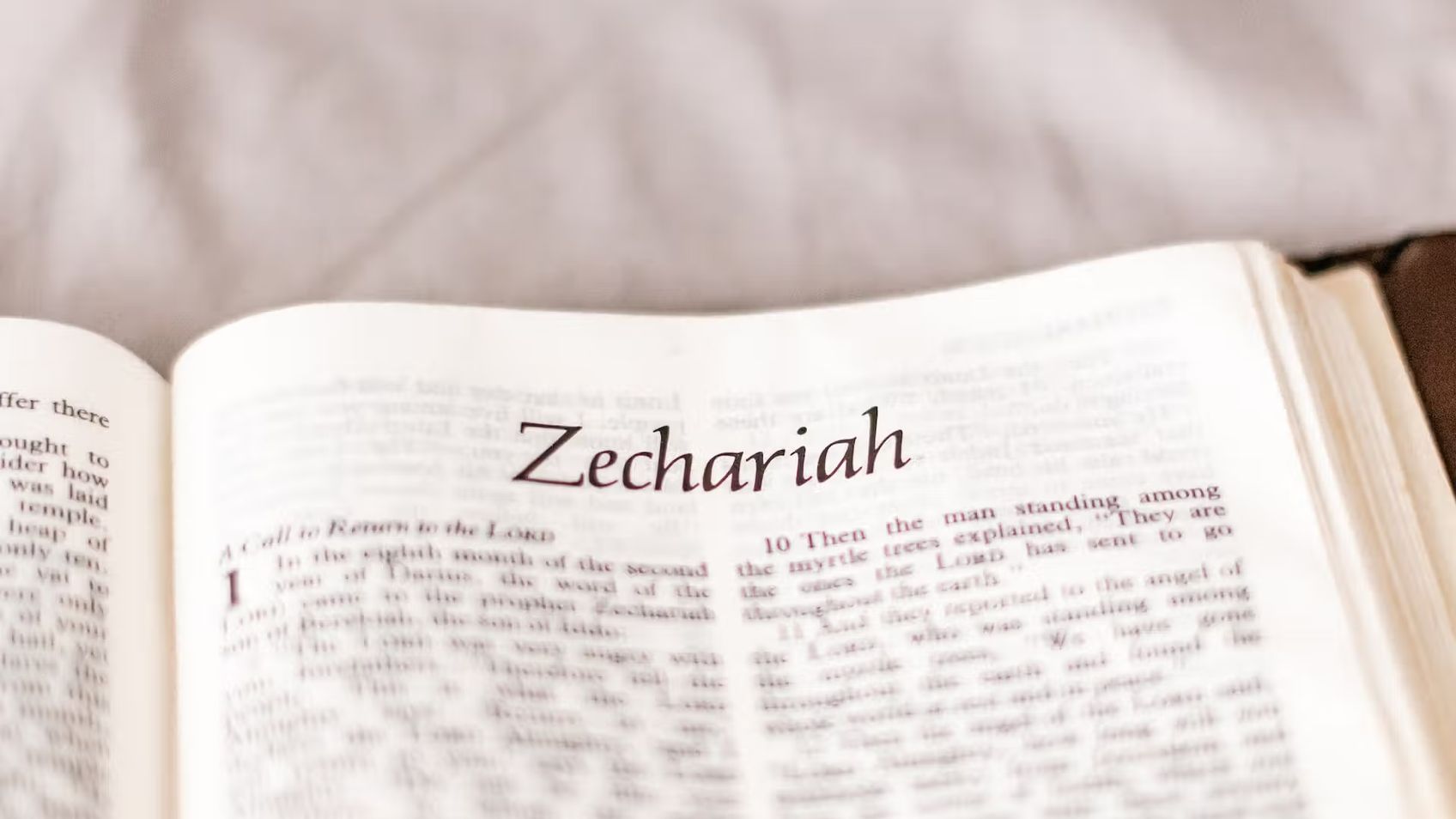Zechariah 14:6 - 14:21

ZechariahSteve Gregg
Zechariah 14 provides apocalyptic imagery and speaks of God's judgment upon Jerusalem, where only a remnant will be preserved. The chapter refers to the first day of the new creation, with spiritual and symbolic language throughout. While the temple built is not permanent, Christ's body is the center of worship and the church acts as a foreshadow of the Kingdom to come.
More from Zechariah
9 of 10

Zechariah 14:1 - 14:5
Zechariah
Zechariah 14:1-5 is a cryptic chapter that speaks of the end times and the second coming of Christ. The prophecy describes the pouring of the Holy Spi
Series by Steve Gregg

Deuteronomy
Steve Gregg provides a comprehensive and insightful commentary on the book of Deuteronomy, discussing the Israelites' relationship with God, the impor

Lamentations
Unveiling the profound grief and consequences of Jerusalem's destruction, Steve Gregg examines the book of Lamentations in a two-part series, delving

2 Thessalonians
A thought-provoking biblical analysis by Steve Gregg on 2 Thessalonians, exploring topics such as the concept of rapture, martyrdom in church history,

Original Sin & Depravity
In this two-part series by Steve Gregg, he explores the theological concepts of Original Sin and Human Depravity, delving into different perspectives

Genuinely Following Jesus
Steve Gregg's lecture series on discipleship emphasizes the importance of following Jesus and becoming more like Him in character and values. He highl

The Life and Teachings of Christ
This 180-part series by Steve Gregg delves into the life and teachings of Christ, exploring topics such as prayer, humility, resurrection appearances,

Kingdom of God
An 8-part series by Steve Gregg that explores the concept of the Kingdom of God and its various aspects, including grace, priesthood, present and futu

1 Corinthians
Steve Gregg provides a verse-by-verse exposition of 1 Corinthians, delving into themes such as love, spiritual gifts, holiness, and discipline within

Ezekiel
Discover the profound messages of the biblical book of Ezekiel as Steve Gregg provides insightful interpretations and analysis on its themes, propheti

Jonah
Steve Gregg's lecture on the book of Jonah focuses on the historical context of Nineveh, where Jonah was sent to prophesy repentance. He emphasizes th
More on OpenTheo

Can You Provide Verifiable, Non-Religious Evidence That a Supernatural Jesus Existed?
#STRask
November 10, 2025
Question about providing verifiable, non-religious evidence that a supernatural Jesus existed.
* I am an atheist and militantly anti-god-belief. Ho

Could the Writers of Scripture Have Been Influenced by Their Fallen Nature?
#STRask
October 23, 2025
Questions about whether or not it’s reasonable to worry that some of our current doctrines were influenced by the fallen nature of the apostles, and h

Did Jesus Prove He Wasn’t Sinless When He Overturned the Tables?
#STRask
December 29, 2025
Questions about whether Jesus proved he wasn’t sinless when he overturned the tables, whether Jesus’ response to the Pharisees in Mark 3:22–26 was a b

Can You Recommend Good Books with More In-Depth Information and Ideas?
#STRask
January 22, 2026
Questions about good books on Christian apologetics, philosophy, and theology with more in-depth information and ideas, and resources to help an intel

Can Two Logical People Come to Conflicting Conclusions Without Committing a Fallacy?
#STRask
January 8, 2026
Questions about whether two logical people can come to conflicting conclusions on a topic without committing a fallacy, how Greg, as a public figure,

Are Demon Possessions and Exorcisms in the New Testament Literal?
#STRask
December 11, 2025
Questions about whether references to demon possessions and exorcisms in the New Testament are literal, how to talk to young children about ghosts, an

How Can I Explain Modesty to My Daughter?
#STRask
November 27, 2025
Questions about how to explain modesty to a nine-year-old in a way that won’t cause shame about her body, and when and how to tell a child about a pre

Keri Ingraham: School Choice and Education Reform
Knight & Rose Show
January 24, 2026
Wintery Knight and guest host Bonnie welcome Dr. Keri Ingraham to discuss school choice and education reform. They discuss the public school monopoly'

What Is the Role of the Holy Spirit in Our Lives if He Doesn’t Give Us Instructions?
#STRask
February 23, 2026
Questions about the role of the Holy Spirit in our lives, advice for someone who believes in God intellectually but struggles to understand how to hav

Life and Ministry in Charlotte and in the SBC with Clint Pressley
Life and Books and Everything
December 15, 2025
In a rare cultural anomaly that may never be repeated in our lifetimes, the current SBC President and current PCA Moderator live in the same neighborh

Christmas Cranks and Christmas Blessings with Justin Taylor and Collin Hansen
Life and Books and Everything
December 17, 2025
If you are looking for a podcast where three friends talk about whatever they want to talk about and ramble on about sports, books, and grievances, th

An Invitation to the 2026 Coram Deo Pastors Conference
Life and Books and Everything
February 18, 2026
"I love being a pastor, and I love pastors, which is why I hope you will consider joining us at the Coram Deo Pastors Conference in 2026." —Kevin DeYo

Why Does the Bible Teach You How to Be a Proper Slave Owner?
#STRask
November 13, 2025
Question about why it seems like the Bible teaches you how to be a proper slave owner rather than than saying, “Stop it. Give them freedom.”
* It s

Why Would Any Rational Person Have to Use Any Religious Book?
#STRask
December 8, 2025
Questions about why any rational person would have to use any religious book, whether apologetics would be redundant if there were actually a good, un

The Resurrection Standoff: Licona vs. Ehrman on the Unbelievable Podcast
Risen Jesus
October 22, 2025
This episode is taken from the Unbelievable podcast with Justin Brierly in 2011 when Dr. Bart Ehrman and Dr. Michael Licona address the question: Is t
